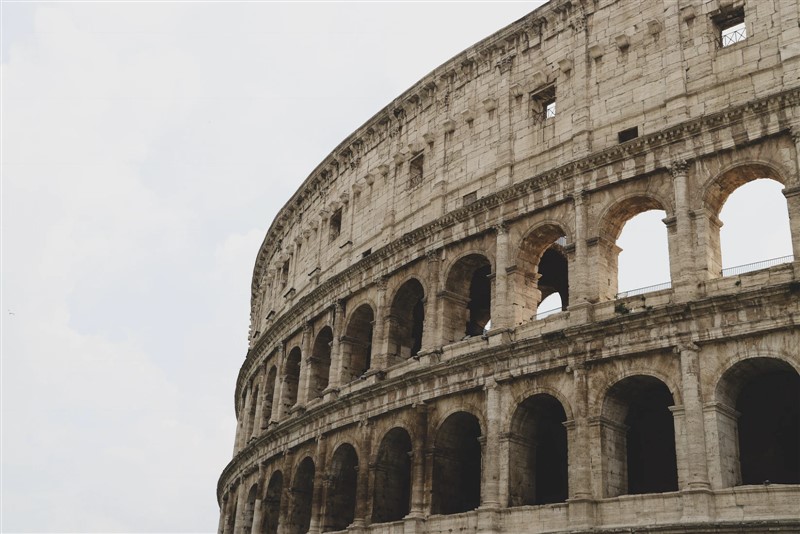Do you know the definition of colossal? This guide will give you all of the information you need on the word colossal, including its definition, usage, origin, example sentences, and more!
-
Kevin
-
 March 4, 2021
March 4, 2021
-
 Common Questions
Common Questions
 March 4, 2021
March 4, 2021
 Common Questions
Common Questions
Do you know the definition of colossal? This guide will give you all of the information you need on the word colossal, including its definition, usage, origin, example sentences, and more!
According to Merriam-Webster, Dictionary, and other dictionary apps, the word colossal means something that is great or massive in size, extent, or degree. This word is an adjective which means it is used to describe a person, place, or thing. The word colossal can also describe something that resembles a colossus, or in architecture, something that pertains to a classical style of architecture in which columns or pilasters span two or more stories high on a building. A colossus is a statue of gigantic size, or a person or thing that has immense size or power, according to Merriam-Webster. Related words to colossal incluse colossality, which is a noun, colossally, which is an adverb, supercolossal, which is a superlative adjective, and supercolossally, which is an adverb. Someone can sue the word colossal to describe any person, place, or thing that is very large.

According to Etymonline, the word colossal (see colossus) has been used since 1712 to mean something that is huge or gigantic. There was also a similar word used from the 1600s, which is colossic. This word was used to mean the same thing as colossal. There was also the word colosseum which was used in the 17th century. The word colossal comes from the French colossal, from colosse, which steam from the Latin colossus which was a statue larger than life, or the Greek kolossos which meant gigantic statue.
The Latin and Ancient Greek words colossus and kolossos are from unknown origin, according to Etymonline. Herodotus used the greek word to describe giant Egyptian statues, while the Romans used the Latin word to describe the bronze statue of Helios at the entrances to the Rhodes harbor. The use of this word in a figurative sense has been used since 1794. Other related words include colosseum, which is a giant arena in Rome, Italy according to Britannica. While the word colossal used to only be used to describe a colossal statue, it can now be used to describe anything that is very big or larger than life-size.
If one wished to use a word or phrase that means the same thing as the word colossal, they could use a synonym. One might choose to use a synonym to expand their vocabulary or to avoid repeating themselves. This list of synonyms for the word colossal is provided by Thesaurus.
What if someone wanted to describe something that was the opposite of colossal? In this case, that person could use an antonym. An antonym is the opposite of a synonym, and it is a word or phrase that means the opposite of a given word. This list of antonyms is also provided by Thesaurus.
The word colossal can be used to describe a person, place, or thing. In the below examples, the word will be used to describe each of these. In this first example, Danica is telling her friend Rebecca about her trip to France.
Danica: It was so amazing! The Eiffel Tower was absolutely colossal, it was pretty shocking.
Rebecca: Wow, that’s stupendous! I loved seeing your photos on Instagram! How was the Louvre?
Danica: It was really cool, but I’ll be honest, I thought the Mona Lisa was going to be way bigger. It was so small!
Here, Danica uses the word colossal to describe the larger-than-life Eiffel Tower. In this next example, Rebecca will use the word colossal to describe a person.
Danica: Hey Rebecca! How was your night last night? Fun Insta stories from the club!
Rebecca: Yeah, the night was fun to start, but it got kind of scary when we left. We decided to walk home since we were in a group but this colossal guy started following us. We ended up ducking into a convenience store and calling an Uber.
Danica: Oh my God! I’m so happy you’re okay. That’s so scary!
Here, Rebecca uses the word colossal to describe the large man that was trying to follow her and her friends home from the club. In this last example, Danica will use the word colossal to describe a thing. Rebecca stops by Danica’s desk at work.
Rebecca: Hey Danica! Do you want to go out to lunch? I think a few people were planning on going for sushi.
Danica: Ugh, I wish I could, but I have got this massive stack of reports I have to finish by the end of the day. That’s the one thing I hate about vacation – you always come back to more work.
Rebecca: Oh no, I’m sorry! Well, let me know what you want and I’ll bring you something back!
Overall, the English word colossal means gigantic or huge, or resembling a colossus. This word is an adjective that can be used to describe anything that is very big. The word has both French, Latin, and Greek roots and stems from a time in which massive statues were referred to as colossus.